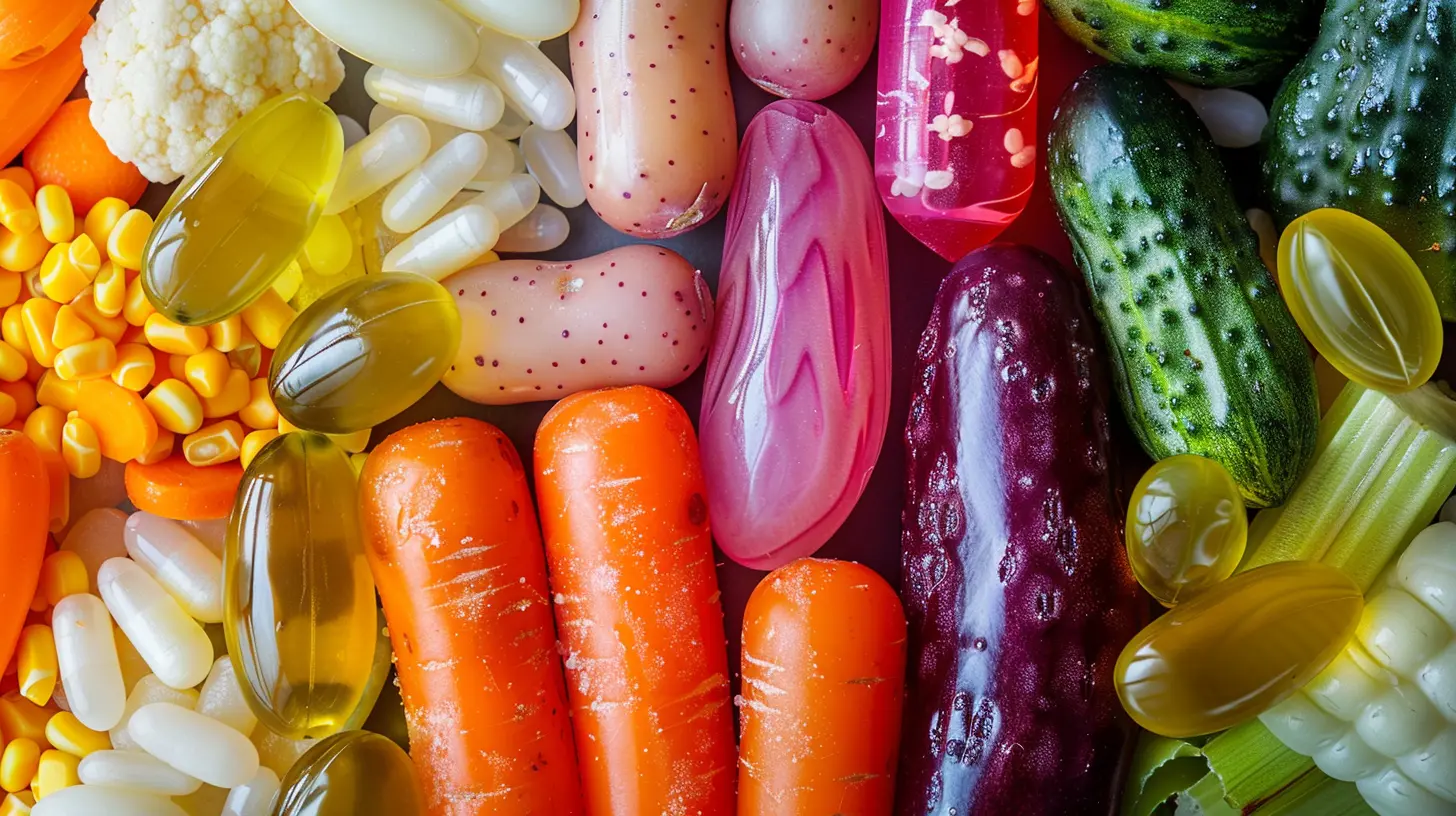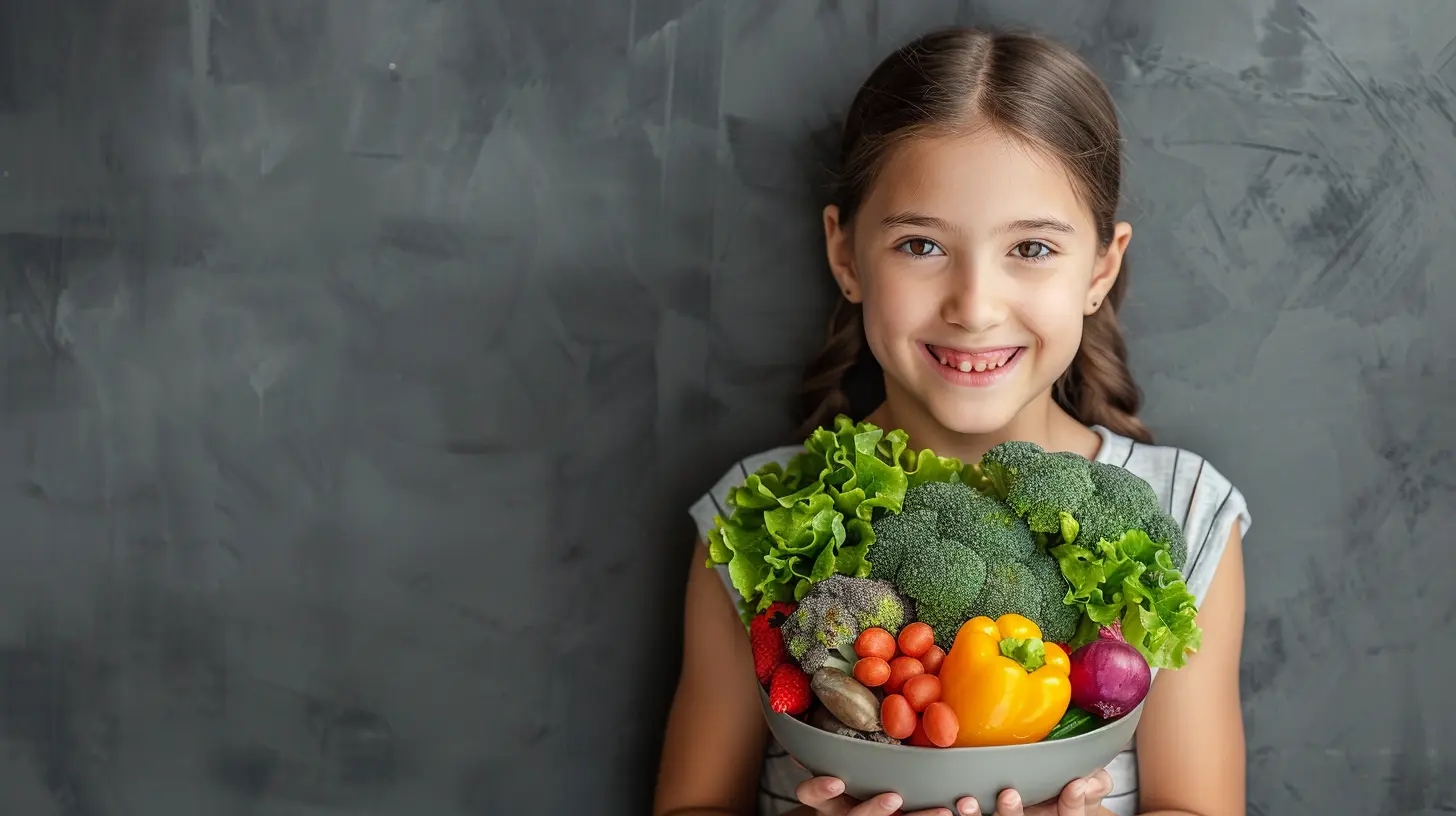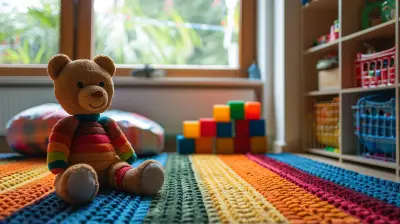Understanding the Benefits of Probiotics for Your Kids’ Gut Health
6 July 2025
Let’s be real — parenting comes with a million questions, doesn’t it? You’re constantly trying to figure out what’s best for your kid—from their first steps to their first real meal. And somewhere along the line, you’ve probably heard about probiotics and how they can help your little one’s tummy. But what exactly are probiotics, and why should you even care about them?
Well, buckle up, because we’re diving into the world of probiotics and gut health — and more specifically, why it’s actually a big deal for your child’s overall well-being.
What Are Probiotics, Anyway?
You’ve likely seen the word "probiotics" on yogurt labels or supplement bottles. But what are they really?In the simplest terms, probiotics are live, good bacteria that hang out in your gut. Yep, we’re talking about bacteria — but the friendly kind. Think of them as the tiny superheroes that help keep your digestive system healthy and balanced.
We all have bacteria in our intestines. Some are good, some not so much. Probiotics help swing the balance in favor of the good guys.
Why Gut Health Matters for Kids
Here’s a fun fact: your child’s gut is like their second brain. No joke. The gut and the brain are constantly chatting through what's called the gut-brain axis. So when your child’s gut is happy, chances are their mood, immune system, and even sleep can improve.Let’s break down why your kid’s gut health deserves some serious attention.
1. Stronger Immunity
Did you know that more than 70% of the immune system lives in the gut? Crazy, right? A healthy gut can help your child fend off all those school-time sniffles and stomach bugs. Probiotics support the good bacteria that keep the immune defenses strong.2. Better Digestion = Happier Tummies
Ever dealt with a kiddo who’s bloated, gassy, or constipated? Not fun — for them or for you. Probiotics can help regulate digestion, reduce bloating, and promote regular bowel movements. Less tummy trouble = more playtime and fewer tears.3. Fewer Antibiotic Side Effects
Antibiotics are important when your child is really sick, but they wipe out both bad and good bacteria. Probiotics help repopulate the gut with the good stuff after a round of antibiotics, reducing nasty side effects like diarrhea.4. Possible Allergy Relief
Research is growing, but some studies suggest probiotics may help reduce the risk of eczema, food allergies, and even seasonal allergies in children. While it's not a magic pill, every little bit helps, right?5. Mental and Emotional Support
There’s growing evidence that a healthy gut can influence mood and behavior. Yep — the gut-brain connection is real. That means probiotics might help with anxiety, focus, and even sleep in some kiddos.
Signs Your Child Might Benefit from Probiotics
So how do you know if your child’s gut could use a little boost?Here are a few signs to watch out for:
- Frequent tummy troubles (bloating, constipation, diarrhea)
- Recurrent colds or infections
- Mood swings or anxiety
- Skin issues like eczema
- Frequent use of antibiotics
Even if none of these are popping up, probiotics can still be a smart addition to keep their gut in top shape.
Natural Sources of Probiotics for Kids
You don’t always need a supplement. A lot of probiotic-rich foods are both kid-friendly and delicious. Here are a few winners:1. Yogurt
Probably the easiest place to start. Look for yogurt labeled with “live and active cultures.” Opt for plain, unsweetened versions and toss in some fruit or honey for a healthier treat.2. Kefir
Think of kefir as yogurt’s drinkable cousin. It’s a fermented milk drink that’s loaded with probiotics. Great for smoothies or just on its own.3. Sauerkraut
Okay, maybe not every kid is rushing to eat fermented cabbage — but try mixing a little into sandwiches or as a side dish. They might surprise you!4. Miso and Tempeh
If your child likes Asian flavors, these fermented soy products are packed with probiotics and can be slipped into soups or rice bowls.5. Pickles (fermented in brine)
Look for “naturally fermented” pickles — not the ones swimming in vinegar. These are full of those gut-friendly bacteria.Probiotic Supplements: Are They Safe for Kids?
Short answer: usually, yes — but with some important caveats.Not all probiotics are created equal. Different strains do different things, so choosing the right one matters. For kids, look for strains like:
- Lactobacillus rhamnosus GG – great for diarrhea and immune support.
- Bifidobacterium infantis – helpful for regulating digestion.
- Saccharomyces boulardii – useful during and after antibiotics.
Always check in with your child’s pediatrician before starting any supplement, especially if they have underlying health conditions.
Oh, and one more tip — look for supplements specifically formulated for children. These often come in tasty chewables or powders you can mix into food or drinks. Easy peasy.
How to Choose the Right Probiotic for Your Child
Here’s a quick cheat sheet for picking a quality probiotic:🟢 Age-appropriate: Choose one made especially for kids — the dosage and strains are tailored for smaller bodies.
🟢 CFU count: Look for something between 5–10 billion CFUs (Colony Forming Units). More isn’t always better, but you want enough to make a difference.
🟢 Multiple strains: A variety of strains can offer broader gut support. Think of it as a team instead of a solo act.
🟢 No weird additives: Avoid artificial sweeteners, colors, or preservatives.
🟢 Storage: Some probiotics need to be refrigerated, while others are shelf-stable. Check the label!
What to Expect When Starting Probiotics
If you decide to add probiotics to your child’s routine, don’t expect overnight miracles. It usually takes a couple of weeks to notice changes. Some kids might experience mild gas or changes in stools during the first few days — it's just their gut adjusting. Totally normal.Stick with it, and make sure they’re getting them consistently. Like watering a plant, it takes time to see growth!
Easy Tips to Boost Gut Health Overall
Probiotics are just one piece of the puzzle. Here are a few more kid-friendly tips to keep that gut happy:- Load up on fiber: Fruits, veggies, and whole grains feed the good bacteria.
- Cut back on processed junk: Too much sugar and fake ingredients throw gut balance out of whack.
- Stay hydrated: Water helps everything flow smoothly in the digestive tract.
- Get moving: Regular play and physical activity help digestion too.
- Sleep it off: A well-rested body supports a healthier microbiome.
FAQs About Kids and Probiotics
Can babies take probiotics?
Yes — but always consult your pediatrician first. Some infant-specific probiotics are designed to support colic, gas, and digestive health from the very early days.How often should kids take probiotics?
Most can take them daily, especially during or after antibiotics or tummy troubles. But follow the dosage instructions or doctor’s advice.Are there any side effects?
Most kids do fine, but some may experience gas or bloating at first. If symptoms persist, pause and speak with a healthcare provider.Final Thoughts
A happy gut can mean a happier, healthier kid—and fewer sick days and meltdowns for you to juggle. Whether you go the food route, add a supplement, or combine both, probiotics are a small change that can lead to big benefits.Just remember, it's not about perfection. It’s about progress. You don’t have to overhaul your kid’s diet overnight—just start where you are and build from there.
Their gut will thank you — and honestly, so will you.
all images in this post were generated using AI tools
Category:
Kids NutritionAuthor:

Liam Huffman
Discussion
rate this article
1 comments
Berenice Pacheco
This article offers valuable insights into the role of probiotics in children's gut health. With clear explanations and practical tips, it highlights how these beneficial bacteria can boost immunity, improve digestion, and support overall well-being. A must-read for parents looking to enhance their kids' health naturally!
July 16, 2025 at 2:49 AM

Liam Huffman
Thank you for your kind words! I'm glad you found the insights helpful for enhancing children's gut health.


